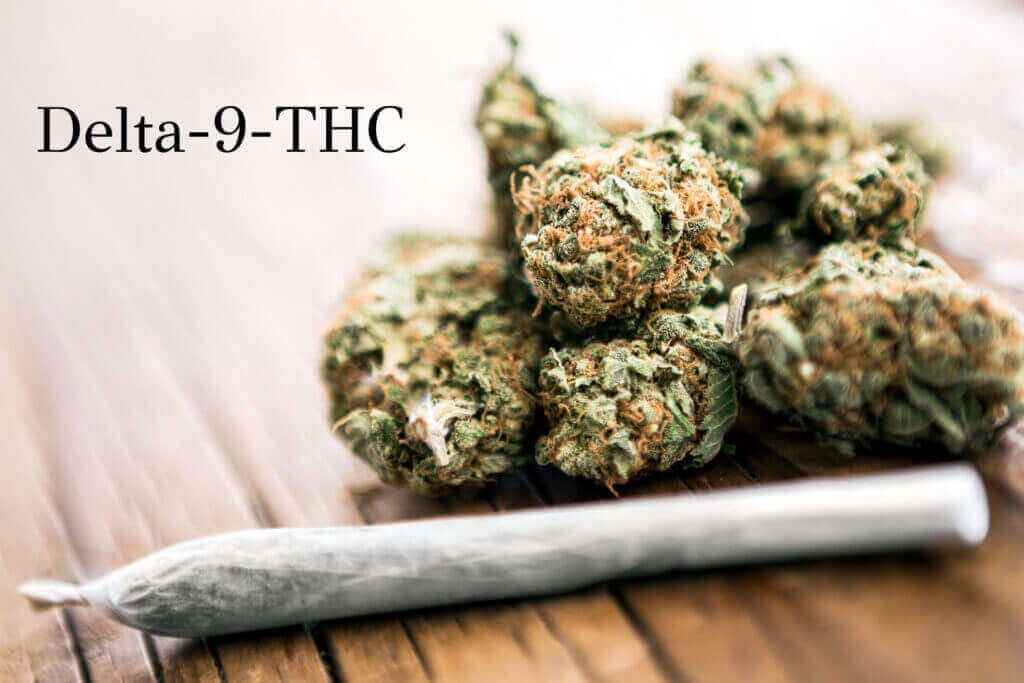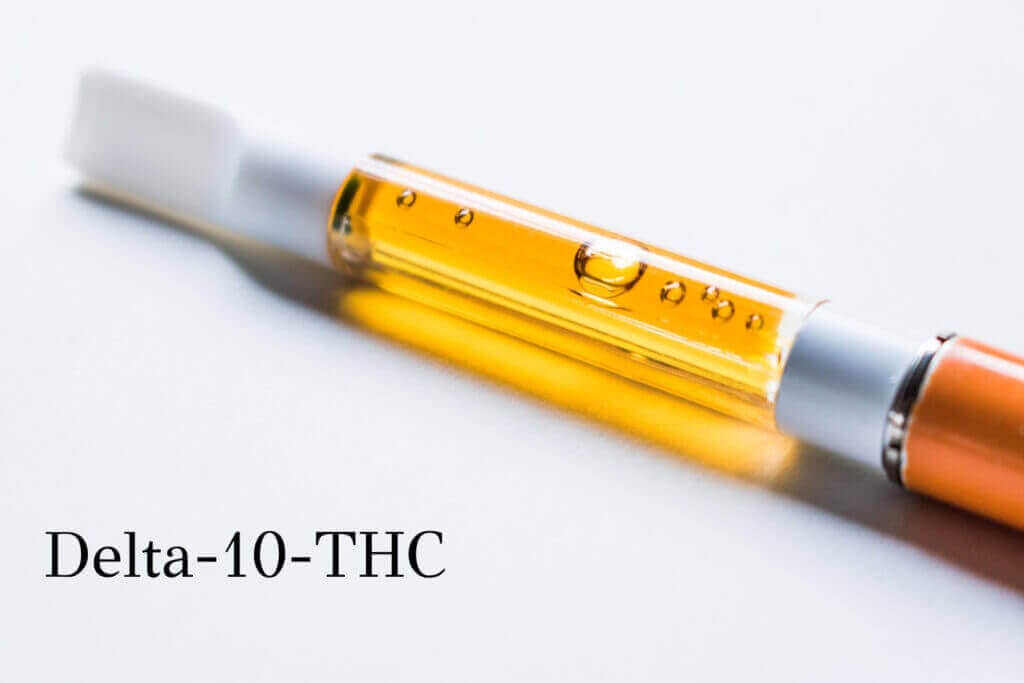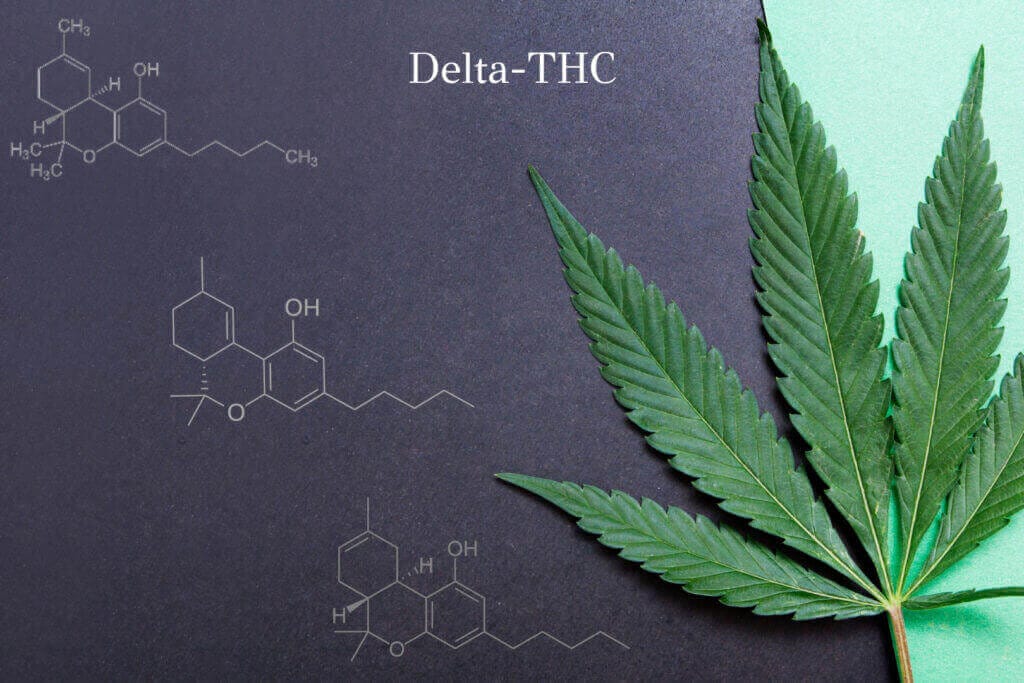
Cannabis is a fascinating plant made of thousands of compounds, including hundreds of various terpenes and cannabinoids. Each of the compounds offers unique properties and purposes within the genetic makeup of the plant and how it affects those that consume or otherwise utilize it. One of the most infamous compounds in cannabis is undoubtedly THC. THC is scientifically known as Delta-9-tetrahydrocannabinol or Delta-9-THC. In recent years, however, there are other deltas that have made a name for themselves, such as Delta-8 and Delta-10-tetrahydrocannabinol.
In this article, we are going to explore these three deltas more in-depth, taking a look at their legalities, the therapeutic properties they may offer, and any potential risks they may present to consumers or patients. Let’s start with Delta-9, as it is the one that is most widely known!

Delta-9-tetrahydrocannabinol, or Delta-9 for short, is one of more than 100 identified phytocannabinoids produced by cannabis plants. This phytocannabinoid is most widely known for being the compound that gives cannabis its “intoxicating” effects. This naturally occurring cannabinoid is present in nearly all chemovars of cannabis, with some cultivars consistently producing more than 30% THC content. However, there are many cultivars of cannabis that contain much lower concentrations of Delta-9. In fact, industrial hemp is defined in the United States as cannabis containing less than 0.3% THC content.
Delta-9-THC was first isolated and discovered by Raphael Mechoulam and Yechiel Gaoni in 1964. At this time, they identified the chemical structure of Delta-9 as well as its psychotropic properties. These psychotropic properties are what make cannabis famous for the relaxing, euphoric, and sometimes intoxicating effects it produces.
This cannabinoid is one of the most prevalently researched compounds from cannabis. It has been shown to offer a plethora of potential medical benefits for a wide range of diseases and ailments. Some of those potential benefits include but are not limited to the following.
These are just a few of the benefits that Delta-9-THC has been shown to offer through scientific research. While Delta-9-THC does offer a wide range of potential therapeutic benefits, this does not mean that it comes without risks. However, none of them are cause for major concern. This is because even in large concentrations, cannabis is not fatal. However, effects such as paranoia, anxiety, dry mouth, dry eyes, and drowsiness can be common, especially for newcomers to cannabis. When consumed responsibly, though, Delta-9-THC stands to offer a wide range of therapeutic value.

Delta-8-tetrahydrocannabinol, or Delta-8 for short, like Delta-9, was discovered by Raphael Mechoulam just one year after he isolated Delta-9-THC from hashish. Delta-8-THC also occurs naturally in cannabis plants; however, not in large concentrations. Delta-8 is also known for producing psychoactive effects, though they are commonly much “lighter” than the effects produced by Delta-9. This is due to the slight difference in their molecular structures.
Even though this cannabinoid doesn’t exist naturally in high concentrations, it hasn’t stopped Delta-8 products from popping up in stores across the nation. These Delta-8 products, however, are not commonly made utilizing naturally occurring Delta-8 but rather synthesized versions of Delta-8 created by converting CBD. These products are increasingly popular in states that do not allow access to medical or recreational cannabis markets for their residents. This is because of their legality, more on that below. Additionally, according to anecdotal stories, Delta-8 products produce many of the same effects and offer some of the same potential benefits as Delta-9-THC. Some of the effects that consumers of Delta-8 report experiencing include euphoria, happiness, relaxation, and pain relief.
Research surrounding Delta-8, however, is quite limited in comparison to Delta-9, and most research that has been conducted has been on naturally derived Delta-8, not synthetic Delta-8 produced by altering CBD from its natural form. To convert CBD into Delta-8, manufacturers utilize a solvent, most commonly acetic acid, in order to complete the conversion through a process known as isomerization. Unfortunately, the epidemiology fact sheet regarding acetic acid notes that inhaling this chemical can be very dangerous. This is one of the biggest risks of Delta-8 products on the market today. If the conversion is not done properly and residual acetic acid is left behind, it could be very harmful.

Delta-10-tetrahydrocannabinol, or Delta-10 for short, is another form of THC that is being found more and more often in products today. Like Delta-8, Delta-10-THC does not exist in high concentrations naturally within cannabis cultivars, and most products containing Delta-10 are made synthetically by converting CBD from industrial hemp using a solvent such as acetic acid. Delta-10 effects and benefits are also very common to those produced by Delta-8. However, some consider Delta-10 to be more uplifting and energetic and often classify it as being the “Sativa,” whereas Delta-8 tends to produce more relaxing effects, often being classified as the “Indica” of the two.

Delta-8 and Delta-10-THC products are much more common in states that lack legal access to medical or recreational cannabis markets where consumers and patients can access Delta-9-THC products. This is due to the legalities surrounding these three THCs. Let’s explore!
Despite being the most natural of these 3 THCs, Delta-9 is the most regulated . It is also still considered to be highly illegal according to the federal government. Luckily, states have exercised their rights over the last two decades and have taken steps to legalize, decriminalize, or otherwise reform their statewide laws surrounding cannabis, including one of its most prevalent and beneficial cannabinoids, Delta-9-THC. Today, despite federal prohibition being in full effect, there are over 35 states that have implemented operational medical cannabis programs, not only recognizing cannabis as a medicine but also providing access to it for qualifying patients. Additionally, 19 of these states, along with Washington D.C., have legalized recreational/retail cannabis markets in which anyone over the age of 21 can legally access, possess, and enjoy cannabis with varying regulations such as product limitations.
Delta-8 and Delta-10 products, as you have learned, are not produced from naturally occurring phytocannabinoids but rather through isomerization and converting CBD to Delta-8. Because of this, their legality is a little tricky. Technically seeing how CBD derived from industrial hemp is legal under Federal Law thanks to the 2018 Farm Bill, products produced using this CBD should be as well. A federal court even deemed them legal.
However, some states see it this way, while others do not. This is because the CBD utilized does not remain in its natural state and is actually converted to a different compound with an entirely different molecular structure. In addition to this aspect, the risks involved with consuming these products due to how they are manufactured have resulted in several states banning the sales of Delta-8 and Delta-10-THC products.

Delta-8 and Delta-10-THC products are available in many states and have been found to be legal by a federal court. However, there are some states that have still chosen to ban them or otherwise regulate/restrict them. This is due to the potential risk that they present due to their synthetic nature.
Delta-9-THC is the most natural form of THC you can consume. If you live where there is legal access to cannabis, it is recommended that you embrace THC in its natural form.
If you do not have access to a legal medical or recreational cannabis market and live in a state where Delta-8 or Delta-10-THC products are available, there are many consumers embracing them with great success. However, it is essential that you do your due diligence to ensure that the products that you choose are safe. Always ensure that the products that you are purchasing come with third-party lab test results proving that they have tested negative for any residual solvents such as acetic acid, heavy metals, and other impurities.
While all of these deltas can have you flying high, they do not come without their own unique legalities and potential risks. No matter how you choose to consume cannabis, always do so responsibly. Do your best to ensure that the products that you are purchasing are as free of impurities as possible. To learn more about this fascinating plant , check out our Plant Power Series here.